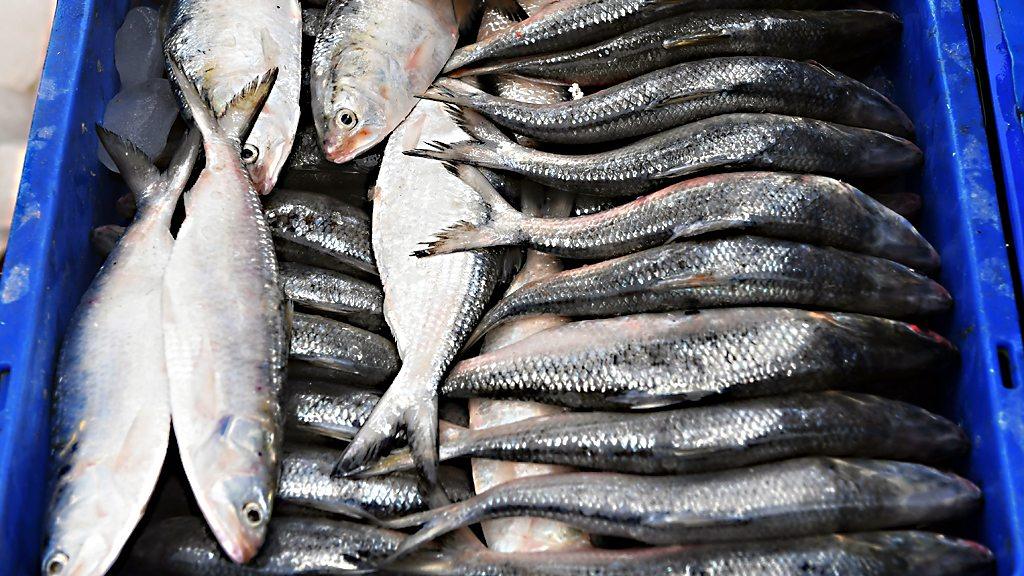'I invented a plastic alternative from fish waste'
- Published
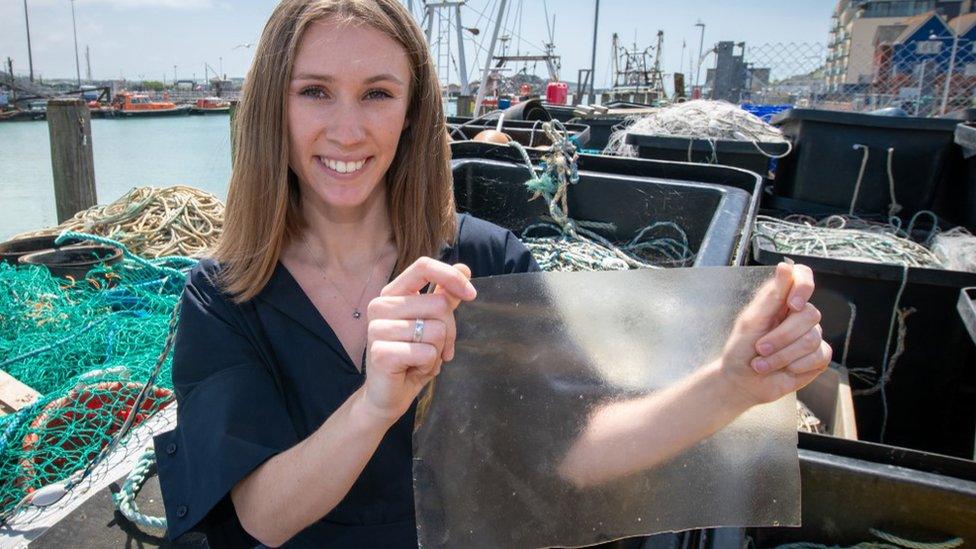
A plastic alternative made of fish, invented to replace the type you might find on a sandwich packet, has won the 2019 international James Dyson award., external
Lucy Hughes, 24, won the UK category earlier this year.
The material, called MarinaTex, is made from fish off-cuts and beat 1,078 entries from around the world, winning Lucy £30,000 in prize money.
"For me, sustainability has never been an afterthought," she tells Radio 1 Newsbeat.
Lucy's mum says she's always had a "three dimensional brain," and after school she would do her homework before anything else.
She studied Product Design at the University of Sussex, and the award-winning material was her final project before graduating.
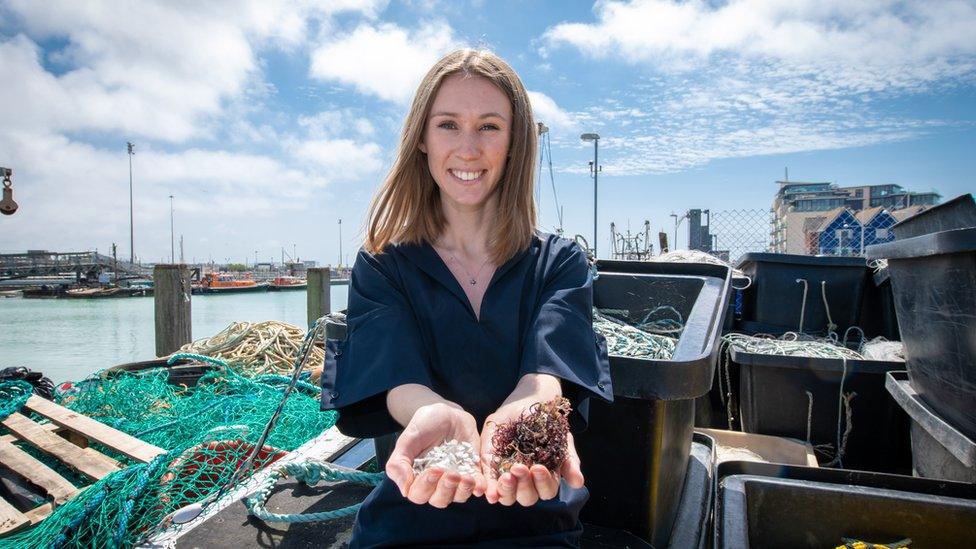
The material is made from fish waste combined with algae
Lucy says environmental impact is an integral part of anything she designs.
"Traditionally, we design in quite a linear way. You take material, make something with it, and then discard of it."
The international James Dyson Award is a student competition run by the James Dyson Foundation.
It says entries should "design something that solves a problem".
Sir James Dyson, the founder, says Lucy's invention "elegantly solves" the problems of single-use plastic and fish waste.
She said: "It's pretty insane that I won, especially with the other entries which were really innovative and resolved pressing issues."
The James Dyson Foundation says 2019 saw the highest number of female entrants, across all 27 nations that took part, since it started in 2007.
Lucy spoke to the BBC when she won the UK award in September.
MarinaTex decomposes in four to six weeks.
The material, unlike most other bioplastics, will biodegrade in regular temperatures. This means people could dispose of it in compost bins at home.
According to a United Nations report, 27% of fish that are caught and brought to land never get used.
MarinaTex takes this waste and combines it with red algae - among other things - to make the plastic alternative.
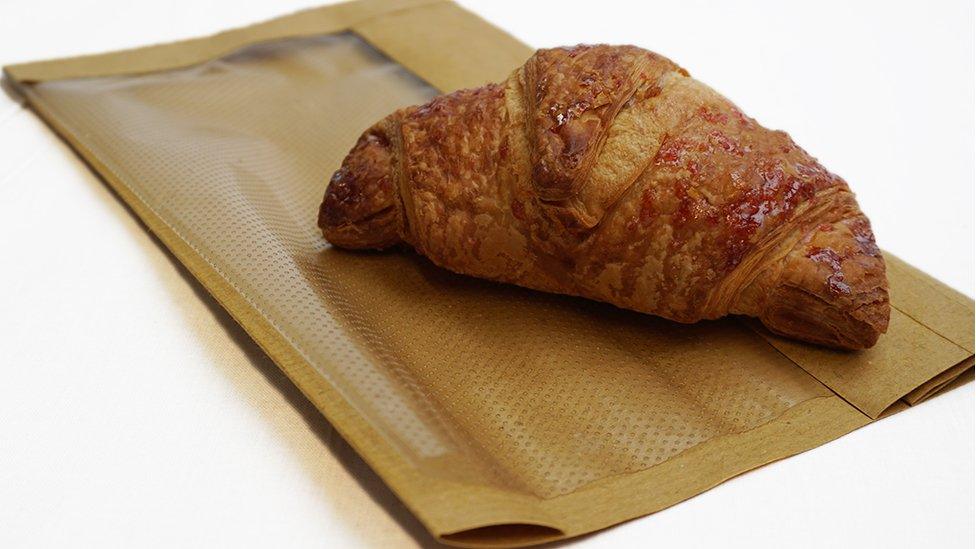
This bakery bag has Lucy's plastic alternative on it
Lucy says she hopes the material can be used for things like bakery bags, "which can sometimes be used for a total of 15 seconds", as well as sandwich packaging and small carrier bags.
After working on creating the material for a year - and winning the award - Lucy says she's "still only in the early days" of what she wants to do with it.
"The next stage is development, to see how I'd be able to mass manufacture it."


Follow Newsbeat on Instagram, external, Facebook, external, Twitter, external and YouTube, external.
Listen to Newsbeat live at 12:45 and 17:45 weekdays - or listen back here.
- Published12 November 2019
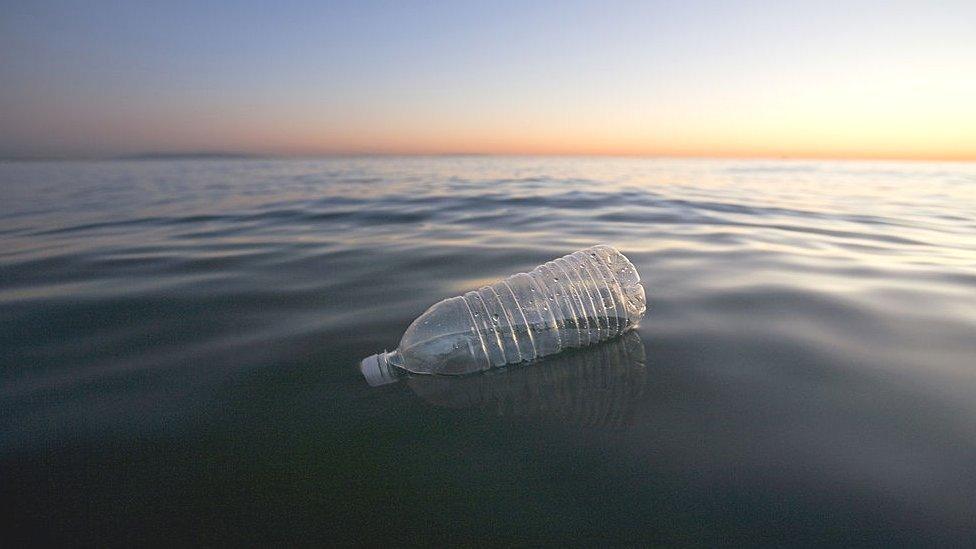
- Published19 September 2019
